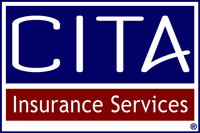-
What Is an Insurance Broker?
What Is an Insurance Broker?
06.01.2016What Is an Insurance Broker?
Insurance itself is often viewed as pretty straightforward – an individual or organization pays a nominated premium to an insurance company and receives a payout if certain conditions are met – but the dynamics of the process of buying or selling insurance can be a little more complex.
Insurance deals typically involve three parties; the insurance company, the customer, and the insurance broker. The insurance company devises the policy and sells it to the customer, either directly or through an agent, and thus becomes contractually bound to provide financial compensation in the event that it is applicable.
The broker exists between the insurance company and the customer, and is licensed to offer the insurance company’s products to consumers and to secure the consumer the best possible deal on their coverage. Insurance brokers are intensely regulated in the United States to ensure that they are providing a fair and unbiased service to all parties involved.
In the United States, insurance brokers must complete regular examinations if they are to renew their brokerage licenses. Details regarding these examinations, the time period within which they must be taken, and the conditions for approval vary from state to state.
Insurance Broker Licensing
It is not only individuals and organizations operating in the traditional brokerage role who must undergo these examinations and be monitored in this way. Again, the details vary from state to state, but the majority of US states require anyone working in insurance sales, solicitation, or negotiation to be a fully licensed broker.
This element of insurance legislation was introduced in part to assist state authorities in overseeing the operation of the insurance industry, and ensuring that parties in the industry act responsibly and within the law. However, it also serves an additional purpose; to provide support and assistance for consumers as they aim to secure insurance which adequately meets their requirements and fits their specific situation. This is particularly pertinent with regard to professional liability insurance (PLI) – also referred to as professional indemnity insurance (PII) or errors and omissions (E&O)insurance – as such policies tend to be taken out by businesses whose financial survival can depend on the coverage they receive.
Brokers in Professional Liability and Errors and Omissions
A broker working with professional liability insurance policies will mediate between an insurance company and an organization or individual who wishes to protect their business against potential financial loss related to a wrongful act, negligence or failure to perform professional duties. Typically, a claim may be brought against an organization if the wrongful act occurs as a direct result of the failure of one of the company’s products, the delivery of substandard professional advice on the part of the company, or through professional negligence. However, coverage may also be required to protect against the cost of other financial losses.
In these cases, the broker is legally obliged to gain a thorough understanding of the needs of the organization, and work in good faith to ensure that they receive an insurance product capable of providing this coverage. The broker must also provide the purchasing organization with all the details required to make a claim, and make sure that the organization understands what is covered and what is not.
The same legal provisions apply to brokers working in this field as to professionals operating in other areas of insurance, securing a fair deal for all parties involved in the insurance purchase.
CITA Insurance has extensive experience offering E&O coverage to insurance agents and financial professionals. To learn more, please click here.
All information provided in this blog is for informational purposes only. The sources used are presumed accurate. CITA Insurance Services, Brown & Brown Program Insurance Services, Inc. and Brown & Brown, Inc. will not be liable for any errors, omissions, losses, injuries or damages arising from its display or use and will not assume responsibility for any misguided information. No guarantees are implied.

